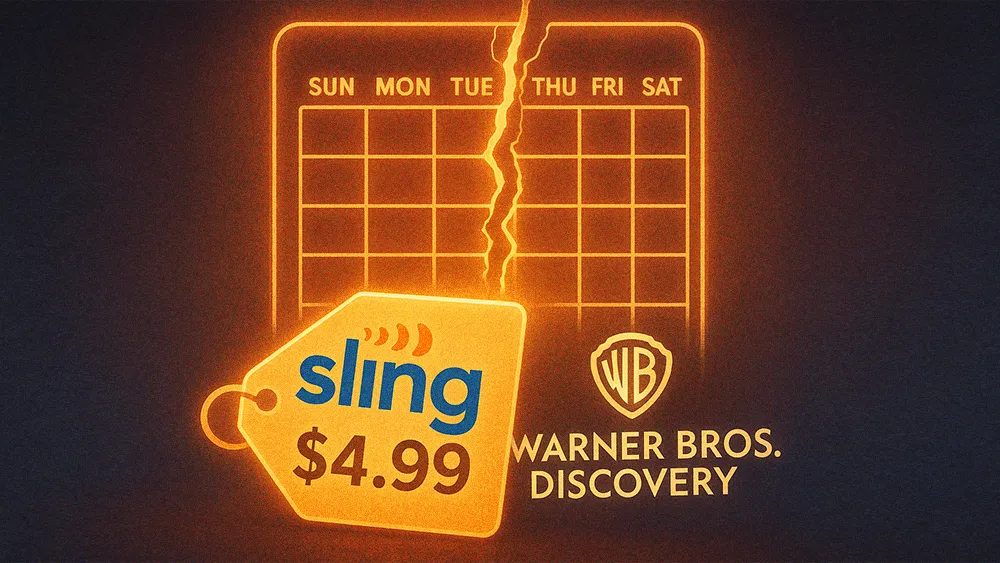Following a similar lawsuit from Disney, Warner Bros. Discovery is suing Sling TV for breach of contract over the service's new short-term "passes," as first reported by The Hollywood Reporter. The legal challenges from two of the world's biggest media companies represent a major battle over the future of the pay-TV business model.
- A la carte aggression: Timed with the start of the football season, Sling’s new options allow users to buy 24 hours of access to its Sling Orange tier for just $4.99. The lawsuits claim these low-cost passes upend the pay-TV industry’s business model, which depends on recurring monthly subscriptions to finance the high cost of acquiring and producing content. WBD’s complaint argues that allowing viewers to cherry-pick events makes it "impossible for programmers to properly plan and invest."
- The consumer-first defense: Sling’s parent company, Echostar, has fired back, framing the move as a pro-consumer stand against a rigid system. "This customer-first model challenges the old guard’s outdated pricing playbook," an Echostar spokesperson said. The company positioned the passes as the latest step in its fight for consumer choice, adding that the model "puts control back in the hands of subscribers."
The lawsuits reveal the dispute is already creating ripples beyond the courtroom. According to the legal filings, other TV distributors are now asking both media giants for similar short-term deals. The battle comes as media giants reckon with the decline of linear TV. While suing to protect the traditional bundle, Disney is simultaneously launching its own direct-to-consumer ESPN streaming service. In a similar vein, the Warner Bros. Discovery networks at the center of the lawsuit are reportedly set to be spun off into a standalone public company next year, highlighting the immense financial pressure on legacy cable assets.

